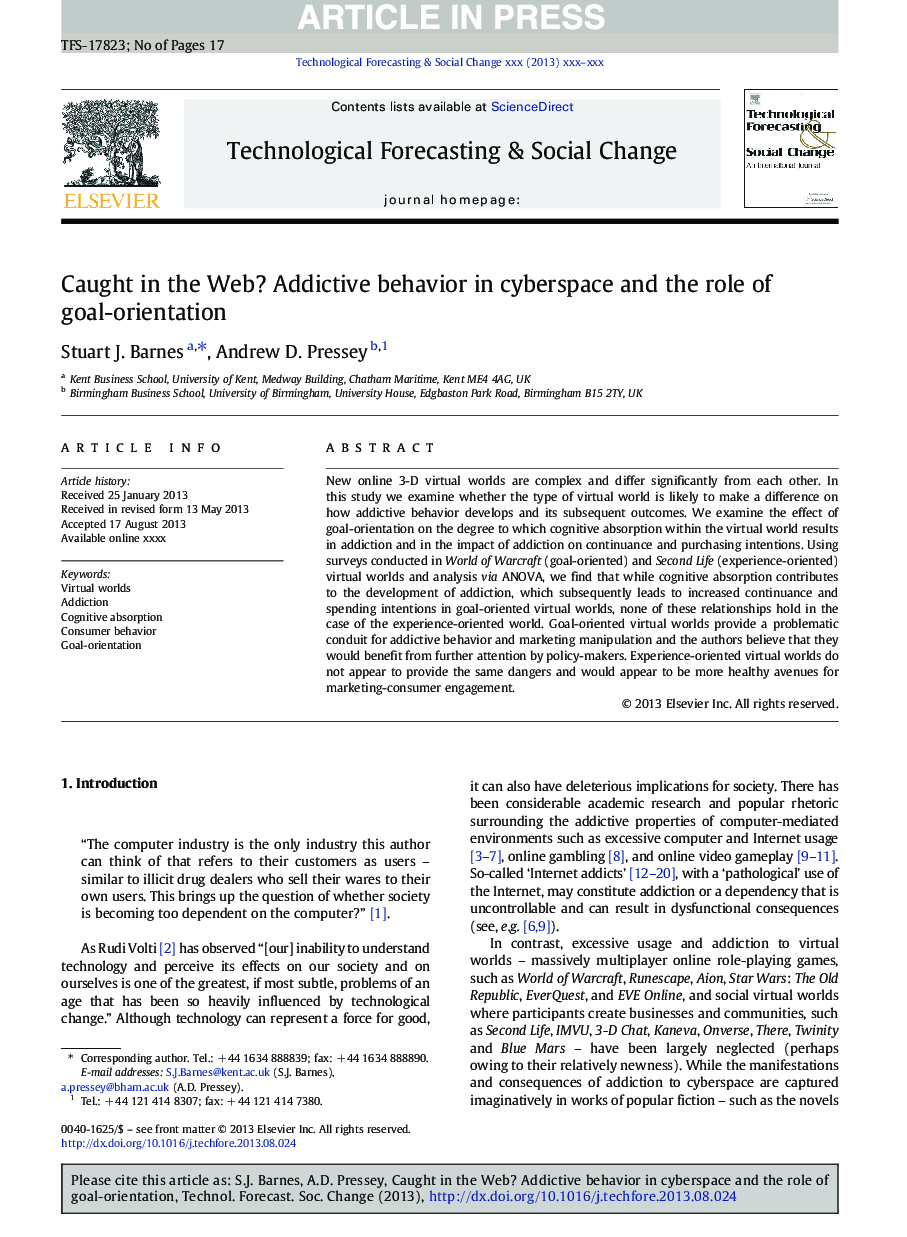| Article ID | Journal | Published Year | Pages | File Type |
|---|---|---|---|---|
| 7257209 | Technological Forecasting and Social Change | 2014 | 17 Pages |
Abstract
New online 3-D virtual worlds are complex and differ significantly from each other. In this study we examine whether the type of virtual world is likely to make a difference on how addictive behavior develops and its subsequent outcomes. We examine the effect of goal-orientation on the degree to which cognitive absorption within the virtual world results in addiction and in the impact of addiction on continuance and purchasing intentions. Using surveys conducted in World of Warcraft (goal-oriented) and Second Life (experience-oriented) virtual worlds and analysis via ANOVA, we find that while cognitive absorption contributes to the development of addiction, which subsequently leads to increased continuance and spending intentions in goal-oriented virtual worlds, none of these relationships hold in the case of the experience-oriented world. Goal-oriented virtual worlds provide a problematic conduit for addictive behavior and marketing manipulation and the authors believe that they would benefit from further attention by policy-makers. Experience-oriented virtual worlds do not appear to provide the same dangers and would appear to be more healthy avenues for marketing-consumer engagement.
Related Topics
Social Sciences and Humanities
Business, Management and Accounting
Business and International Management
Authors
Stuart J. Barnes, Andrew D. Pressey,
